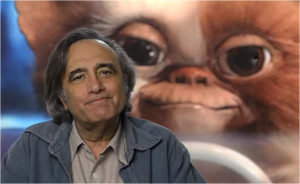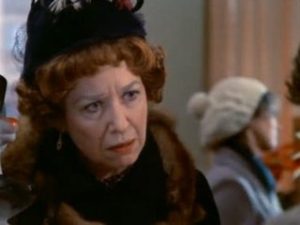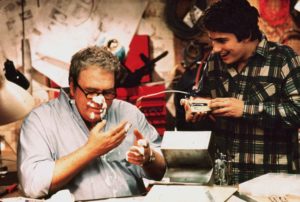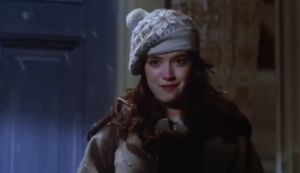Have we talked about Hatchimals yet? Now we are. Hatchimals have been crowned the “hot” toy this Christmas. The premise for the toy is simple: Upon receipt of the gift a countdown begins. Inside egg-shaped orbs are little toys that, over a few days, will peck away at the egg shell and emerge, presumably to become your kid’s most-treasured companion for years. Most likely they’ll become an air removing mass in their toyboxes, on their shelves, or under their beds.
The toy’s maker, from reports I’ve read, has purposefully kept shipments for the toy low and rolled out in small stages, making each restocking cycle into an event. Dutiful parents who feel it is necessary to keep their children from being social pariahs in January are lining up around blocks, in the dark and cold of night, to be the next to get their hands on Hatchimals. I’ve not yet heard of murders over Hatchimals, but that’s bound to happen. There were human crushing incidents in previous “hot toy” incidents like Tickle Me Elmo, the original Nintendo, and the grandaddy of Christmas toy mania, the Cabbage Patch Kids.
In nearly all these cases, the children grew up way too fast and outpaced these toys in months. Much like soup, fads and fashion are only hot for a brief period of time.
 What does that have to do with Gremlins, the 1984 summer horror-comedy produced by Steven Spielberg, directed by Joe Dante (The Howling, The ‘Burbs), and written by newly-minted wunderkind Chris Columbus? It has everything to do with it.
What does that have to do with Gremlins, the 1984 summer horror-comedy produced by Steven Spielberg, directed by Joe Dante (The Howling, The ‘Burbs), and written by newly-minted wunderkind Chris Columbus? It has everything to do with it.
In brief, an idyllic town is turned to ruin one Christmas as Billy Peltzer’s new pet multiplies and transforms into demonic little beasts. Through either ignorance, defiance or a lack of control over others’ actions, Billy ends up breaking the three rules meant for the safe-keeping of mogwai.
1) Keep them out of bright light.
2) Don’t get them wet because that causes them to multiply.
3) Don’t let them eat after midnight because that’s when and how mogwai transform into gremlins.
It is up to Billy, his intrepid and slowly diminishing friends, and pet mogwai Gizmo to undo the damage and to put down all of Gizmo’s deadly brethren.
 The movie evokes the pristine nightmare conjured up by hundreds of Norman Rockwell paintings, Currier & Ives prints, and Bedford Falls as depicted in the Frank Capra movie It’s A Wonderful Life. The latter gets a particularly hard nudge as Columbus has named his perfect little town Kingston Falls in the script. He’s even added a mean and miserly septuagenarian to make the parallels obvious, even though Mrs. Deagle (Polly Holliday, unrecognizable from her previous stint as waitress Flo on the sitcom Alice) gets the comeuppance Lionel Barrymore’s Mr. Potter never did. All the elements are there to recollect false memories of what Christmastime ought to be: big, lit-up trees, lots of fluffy snow, cheery rubes trundling through the streets. By the close of the movie, it’s all going to end in plunder.
The movie evokes the pristine nightmare conjured up by hundreds of Norman Rockwell paintings, Currier & Ives prints, and Bedford Falls as depicted in the Frank Capra movie It’s A Wonderful Life. The latter gets a particularly hard nudge as Columbus has named his perfect little town Kingston Falls in the script. He’s even added a mean and miserly septuagenarian to make the parallels obvious, even though Mrs. Deagle (Polly Holliday, unrecognizable from her previous stint as waitress Flo on the sitcom Alice) gets the comeuppance Lionel Barrymore’s Mr. Potter never did. All the elements are there to recollect false memories of what Christmastime ought to be: big, lit-up trees, lots of fluffy snow, cheery rubes trundling through the streets. By the close of the movie, it’s all going to end in plunder.
That doesn’t sound like a great holiday film experience and, indeed, if you’re looking for warm frosted fuzzies, you should probably revisit the dead-eyed animations in Robert Zemeckis’ The Polar Express. But there is something valuable about this film that most people either gloss over or fail to recognize at all. It is how the whole bang-up started.
 Billy Peltzer’s father Rand, played by Hoyt Axton, is an inventor. Trying to get little shops in Chinatown to buy into his inventions, he comes across one particularly peculiar knick-knack shop. In there he finds a somewhat ancient — and let’s just say it up front, totally stereotypical — Asian gentleman and his very modern grandson. Rand also finds Gizmo the mogwai singing in trills in a golden cage. Rand has to have the mogwai. It would make the most incredible Christmas gift for Billy, but the old man will not sell. He says the responsibility is too great.
Billy Peltzer’s father Rand, played by Hoyt Axton, is an inventor. Trying to get little shops in Chinatown to buy into his inventions, he comes across one particularly peculiar knick-knack shop. In there he finds a somewhat ancient — and let’s just say it up front, totally stereotypical — Asian gentleman and his very modern grandson. Rand also finds Gizmo the mogwai singing in trills in a golden cage. Rand has to have the mogwai. It would make the most incredible Christmas gift for Billy, but the old man will not sell. He says the responsibility is too great.
Hah! Responsibility!
The grandson catches up with Rand as he exits the store and, without his grandfather knowing it, makes the transaction. He tells Rand about those crucial three rules, but given that Rand has already acted in dishonor by purchasing the pet against the old man’s wishes, we know some major-bad crap’s gonna go down.
I’m not saying that everyone’s Hatchimals are going to burst forth on Christmas Day like pustules from a mogwai’s back, to rain terror down upon your hometown. Most likely, those toys aren’t going to be nearly as popular as everyone assumes once the kids have taken ownership of them. Another country conquered…what’s next on the map?
 The key is in Rand Peltzer and how he did something he knew he shouldn’t have done, or at the very least thought was an absurd thing to do, just to be the hero of the moment. As I read articles and see reports about fist fights breaking out over the last bloody Hatchimal, or the person who was trampled under the weight of others mindlessly sprinting to the Tickle Me Elmos, or to that one person who found a way to buy 100 of any of these hot toys and are now reselling on Ebay for quadruple the price, I think of Hoyt Axton’s character. He was so fixated on some kind of emotional uplift that he forgot the best gift you give to your kid is an example. Thousands of parents across America have weighed in. Their example is: I haven’t got it in me to show my love through my actions, so I’ll have to be brigand and buy them my affection.
The key is in Rand Peltzer and how he did something he knew he shouldn’t have done, or at the very least thought was an absurd thing to do, just to be the hero of the moment. As I read articles and see reports about fist fights breaking out over the last bloody Hatchimal, or the person who was trampled under the weight of others mindlessly sprinting to the Tickle Me Elmos, or to that one person who found a way to buy 100 of any of these hot toys and are now reselling on Ebay for quadruple the price, I think of Hoyt Axton’s character. He was so fixated on some kind of emotional uplift that he forgot the best gift you give to your kid is an example. Thousands of parents across America have weighed in. Their example is: I haven’t got it in me to show my love through my actions, so I’ll have to be brigand and buy them my affection.
Gremlins is not the only movie to make explicit the concept that buying your child’s love isn’t effective. Arnold Schwarzenegger’s laughably unfunny holiday flick Jingle All The Way played that note too but continually mashed it, singing along, “See the point we’re making? We’re making a point here! See it!” Whether Chris Columbus meant for Gremlins to be analogous to the over-commercialization of Christmas or whether that was just a fertile jumping-off point has not been revealed to me. I suspect it is more that second aspect than the first.
 Gremlins is still not for little kids, and I’d advise you against showing it to children eight years and younger to explain why they’re not getting any damn Hatchimals this Christmas. Famously, this was the summer of Spielberg shocking parents and roiling the MPAA. This film and Indiana Jones and the Temple of Doom dominated the summer box office, and the non-Spielberg Ghostbusters got Mom and Dad Hackles up further with demonic imagery and sexual overtones. In short measure the fracas led to the creation of the PG-13 rating. In case you missed it, PG-13 stands for “lots of blood, maybe one ‘f’ word in with all the ‘shit,’ and maybe some boob,” and almost all of your kids’ favorite movies now happen to be PG-13. It was a weigh-station between the genre films kids craved and the excesses found in rated R movies, but ended up being a way of getting kids to movies that otherwise would have restricted them.
Gremlins is still not for little kids, and I’d advise you against showing it to children eight years and younger to explain why they’re not getting any damn Hatchimals this Christmas. Famously, this was the summer of Spielberg shocking parents and roiling the MPAA. This film and Indiana Jones and the Temple of Doom dominated the summer box office, and the non-Spielberg Ghostbusters got Mom and Dad Hackles up further with demonic imagery and sexual overtones. In short measure the fracas led to the creation of the PG-13 rating. In case you missed it, PG-13 stands for “lots of blood, maybe one ‘f’ word in with all the ‘shit,’ and maybe some boob,” and almost all of your kids’ favorite movies now happen to be PG-13. It was a weigh-station between the genre films kids craved and the excesses found in rated R movies, but ended up being a way of getting kids to movies that otherwise would have restricted them.
But more than that, I think very young kids are still in that glossy stage where Christmas is a magical time and people are nice to each other, all caught up in the reverie. Nobody is mean at Christmas, and your toys and pets certainly don’t try to kill you. Even if these same kids revel at the carnage wrought when Transformers trample over everything in their path, it is different.
I do think this is a good movie for older kids and parents. The violence — occasionally shocking — is tempered by Joe Dante’s love of Warner Bros. cartoons, and things get progressively sillier as time wears on. And this is an opportunity to introduce those valuable hidden concepts. If Rand Peltzer didn’t get Gizmo for Billy, that doesn’t mean he didn’t love Billy. Billy would not have known either way because he never asked for Gizmo, but still, the point remains that Rand went against the shop owner’s wishes to attain Gizmo. In that moment, it had nothing to do with Billy. It was all about Rand doing what he wanted to do, getting what he wanted to get, and consequences be damned.
Think about that for a moment. You may not have to save your family from gruesome creatures brandishing knives and arrows, but for your angst and ire and general bad behavior in order to possess one of those Hatchimals, you could end up with a nice big shard of plastic eggshell jammed into the bottom of your foot, the toy inside of it lost to god knows where, and your kid out on the back porch playing with the empty refrigerator box instead. Hardly seems worth it, does it?
And sure, I’m having fun with the whole idea of pairing real consumerist insanities with a horror-comedy movie from 1984, but what I am trying to get at is this: If the only way you can think of to prove your love to your kid is to put yourself through some sort of masochistic or undignified act, just to get some thing that will be the most important thing to them for all of a day — two if you’re lucky — you’re being told something, and it’s worth your time to listen. After that, bundle your kids up, take them somewhere of actual importance to you, and make memories. Those tend to last longer.





Comments